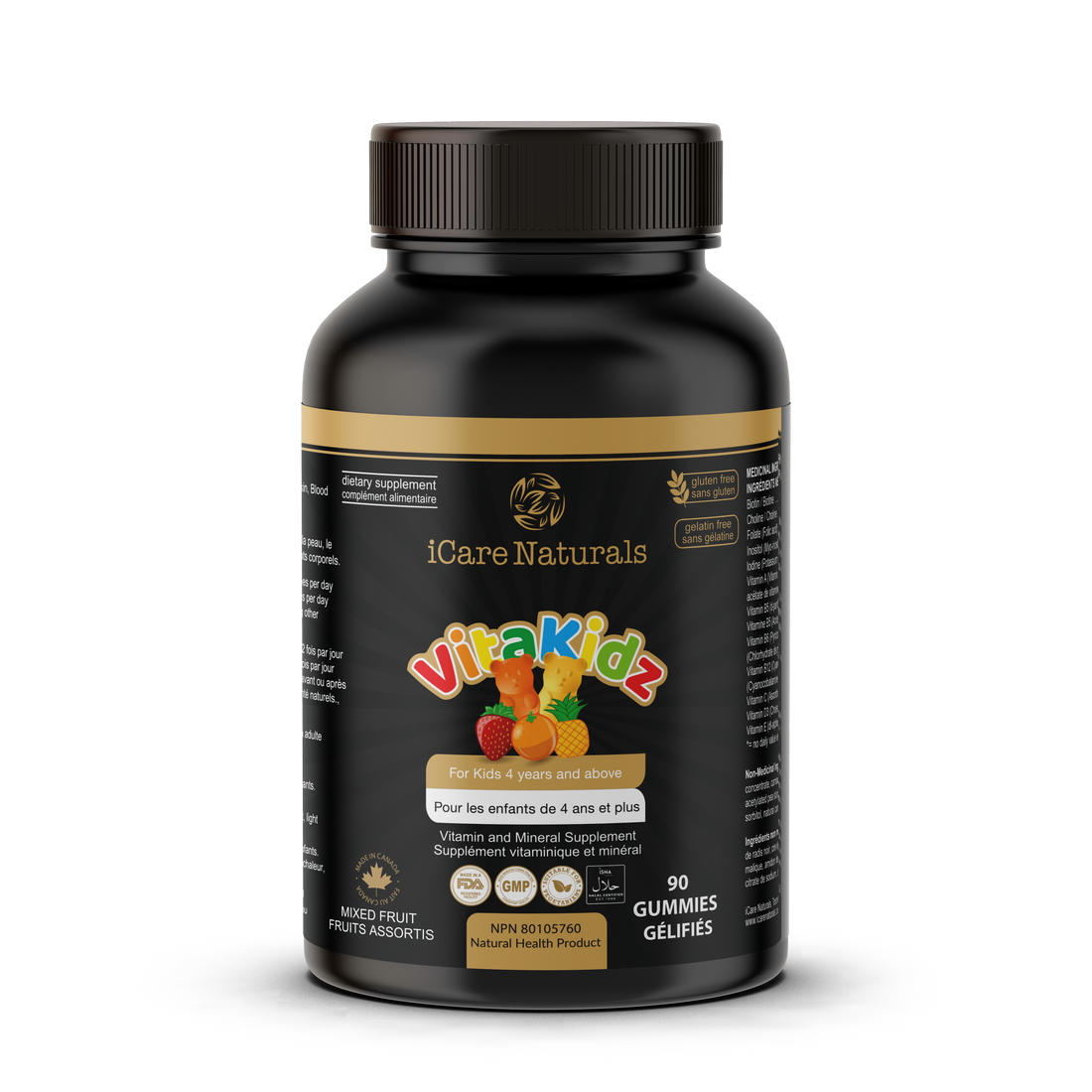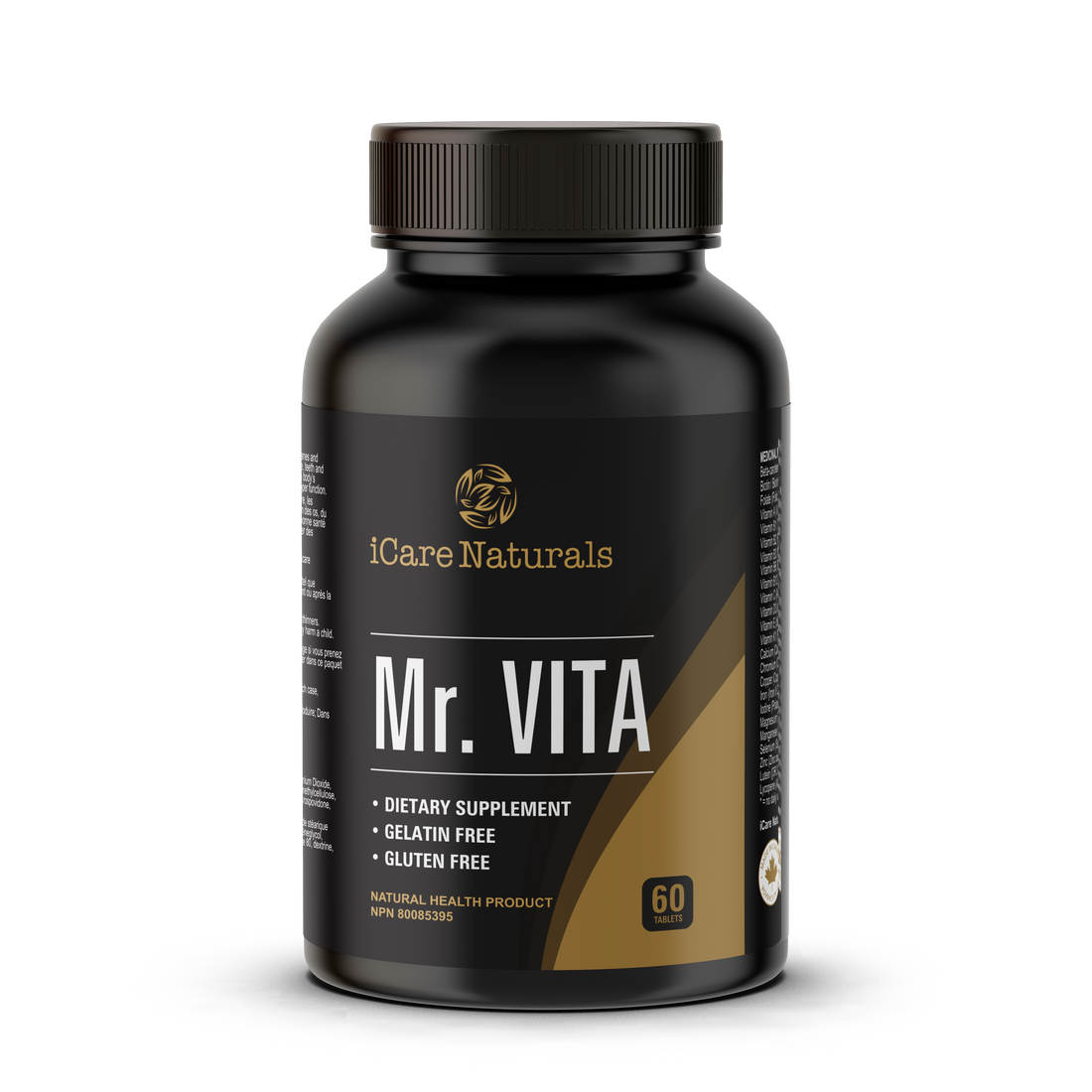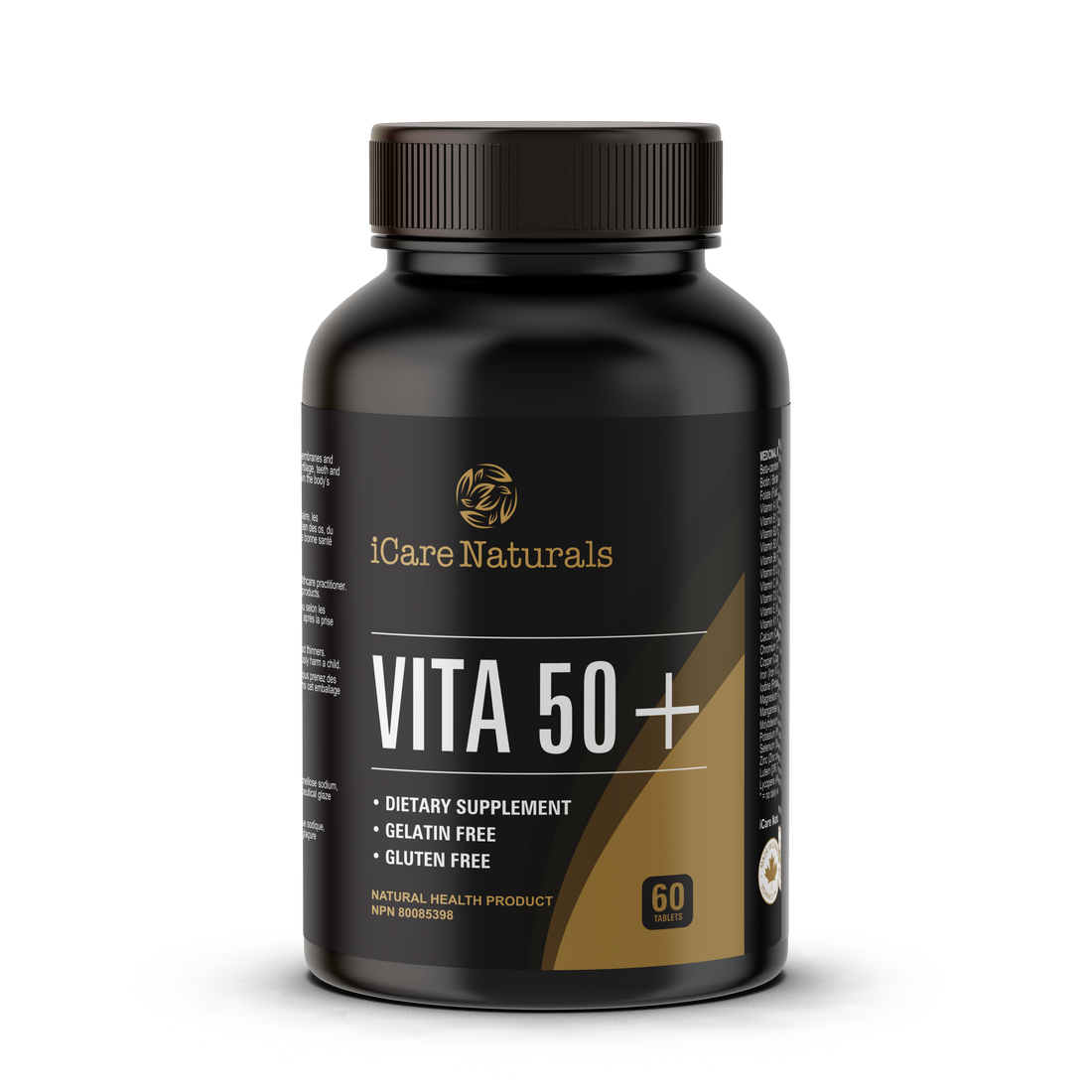It's the beautiful summer season again, with birds chirping and colourful butterflies fluttering around blooming flowers. You hear children giggling and running around with their friends in Central Park. Seems like a perfect picture, right? Because who doesn't like summery breezes where you can go out and enjoy time on the beach or have fun with your children at a campsite?
But somehow, between all the rainbows and glitter, you think about whether the summer sunshine is enough for the stronger bones of your children, or do they still need extra help? The truth is, the summer season is never enough to increase vitamin D to an ultimate level in your child. It matters especially during the growing years, when the bones require a precise amount of nutrients to be met daily.
This is where the need for taking vitamin D supplements, along with calcium intake, becomes necessary to keep bones stronger, even on peak summer days when sunlight is abundant. As a considerate parent or caretaker, here's what you need to know about vitamin D and calcium supplements and how they can support your child's growth.
Why Does Bone Health Matter in Childhood?
Childhood and adolescence are the years when bones grow fastest. Good bone health during these stages sets the foundation for mobility, injury resistance, and long-term well-being.
Poor calcium intake or low vitamin D levels during growth can make it harder for children to reach their peak bone mass, so establishing good habits early is crucial.
Understanding the Teamwork of Vitamin D and Calcium
By consuming enough calcium and vitamin D nutrients from food or by getting the best supplements for children from providers like iCare Naturals, you can help your kids maintain their bone strength and lessen the risk of developing osteoporosis over the years. You can’t ignore any of these supplements; therefore, investing in the most reputable brand is crucial.
1. Calcium
Calcium is the most important nutrient for keeping bones strong and healthy. As an essential mineral in bone structure, it plays a significant role in maintaining bone density and providing the hardness and support it needs.
The Recommended Dietary Allowances (RDA) for calcium are:
|
Age Group |
Recommended Dietary Allowance for Calcium (mg/day) |
|
0-6 months |
200 mg |
|
7-12 months |
260 mg |
|
1-3 years |
700 mg |
|
4-8 years |
1000 mg |
|
9-13 years |
1300 mg |
2. Vitamin D
Vitamin D is another crucial nutrient necessary for stronger bones and improved overall health. It helps in the absorption of calcium in the intestines and moves them to the bones. If you lack vitamin D, you will only be likely to absorb 10% to 15% of calcium from the diet.
Vitamin D Requirements for Children:
|
Age Group |
Recommended Dietary Allowance for Vitamin D (IU/day) |
|
0-12 months |
400 IU |
|
1-18 years |
600 IU |
Summers and Limited Vitamin D Production
Sunlight triggers the skin to produce vitamin D, so summer often brings higher natural vitamin D levels. Playing outdoors is an excellent way for children to get sunshine and be active, both of which are excellent for bone health.
However, several factors can limit natural vitamin D production in the summer season. Some of these limitations include:
- Use of sunscreen (important for skin protection) reduces vitamin D synthesis.
- Time spent indoors despite sunny days.
- Darker skin tones produce less vitamin D from the same amount of sun exposure.
- Geographic location, cloud cover, and air pollution can limit UVB exposure.
Do Children Need Supplements in Summer for Bone Health?
For many children, a balanced diet combined with safe outdoor time provides a sufficient amount of calcium and vitamin D. Foods such as milk, orange juice, yoghurt, cheese, and fatty fish are good sources.
However, there are situations where supplements become a reasonable need for consumption. These calcium and vitamin D supplements can safely fill gaps when used appropriately. But as a guardian or parent, you must remember that they aren't a substitute for a healthy diet and active lifestyle.
The situations in which children must take supplements include:
- Children who are picky eaters or have limited dairy intake.
- Children with medical conditions or medications that affect bone health or vitamin D status.
- Kids who spend little time outdoors or always cover up for sun protection.
- Families living in areas with limited sunlight for parts of the year.
Select an Effective Supplement Brand for Children
If you and your child's healthcare provider decide to start a supplement for the well-being of your little one, here are some practical points to consider:
- Look for supplements that are specifically manufactured for children, as adult formulations mostly contain significantly higher doses.
- Check the label for the added ingredients.
- Avoid higher doses unless prescribed. More is not always better; excessive calcium or vitamin D can cause problems.
- Third-party testing helps. Look for brands that independent labs have tested for purity and accurate labelling.
- Consider VitaKidz - multivitamin gummies from iCare Naturals, or liquid forms of calcium or vitamin D supplements for younger children.
Pair Supplements and Meals for the Best Results
Vitamin D helps increase calcium absorption. So taking both around the same time is a sensible choice. You can start taking calcium with food rather than on an empty stomach to improve absorption and minimise any signs of stomach upset.
Food-first Strategy to Increase Calcium and Vitamin D Levels
Mixing supplements with food and a food-first mindset makes the approach practical and rewarding:
- Dairy: milk, yoghurt, and cheese are always a kid-friendly option.
- Fortified products: plant milks, cereals, and orange juice contain added vitamin D and calcium.
- Fatty fish: canned salmon or sardines (with bones) provide both calcium and vitamin D.
- Egg yolks: considered the best source of vitamin D.
- Leafy greens and beans: contain calcium and add variety to your meals.
When to Consult Your Healthcare Professional?
Supplements are generally safe when used as directed; however, be aware of potential side effects that may occur after starting any supplement. You may notice reactions in your child, including stomach pain or unusual symptoms. Contact your child's healthcare professional immediately.
Moreover, if your child has frequent fractures, poor growth, ongoing health conditions, or you suspect a vitamin deficiency, see your paediatrician. They may recommend a blood test to check vitamin D levels and give personalised advice on supplementation.
Conclusion
Calcium and vitamin D work hand in hand to support healthy bones. While calcium provides the building blocks, vitamin D ensures those nutrients are absorbed and delivered where they’re needed most.
During summer, sunshine and outdoor play naturally boost vitamin D levels, but that doesn’t always mean children are getting enough. If nutrient needs aren’t fully met, you may notice signs like fatigue or weakness in your child.
The best approach is to focus on a nutrient-rich diet, regular physical activity, and safe sun exposure. When these aren’t enough, high-quality supplements can act as a reliable bridge.
Research also shows that vitamin D supplementation can significantly lower the risk of fractures in young children. With the right balance of calcium and vitamin D, you can help your child make the most of summer fun while building strong, healthy bones for life.










